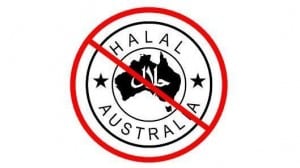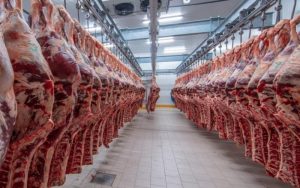THE RSPCA is renewing calls for a ban on slaughter practices that don’t use stunning for sheep and cattle if the Government does not move to reform current exemptions granted for religious reasons.
The RSPCA want legislative reforms to the exemptions granted by State governments ahead of a complete halt to slaughter practices not using stunning in both live export and domestic abattoirs.
RSPCA chief scientist, Dr Bidda Jones, said State and Federal governments had so far failed to take satisfactory action and implement transparency reforms to change practices for the 250,000 Australian sheep, lambs, goats and cattle slaughtered each year for the Halal and Kosher markets.
Dr Jones wants the Federal Government to make a clear commitment on animal welfare problems caused by slaughter without stunning.
She says details are lacking about the number of animals involved in the exemptions and difficulties locating information on which abattoirs were conducting un-stunned religious slaughter practices.
A NSW abattoir the Hawkesbury region, which had its operations suspended earlier this year by the NSW Food Authority due to animal welfare concerns, was slaughtering sheep without stunning for local Halal and Kosher markets.
The RSPCA has written to Federal Agriculture Minister Joe Ludwig in the past month, urging him to address un-stunned religious slaughter and reform the current system.
A high-level Animal Welfare Committee was recently formed following a meeting of State and Federal primary industries ministers in Adelaide last month.
Dr Jones says the Australian livestock industry is uncomfortable with the practice of un-stunned slaughter, even for religious reasons, but wasn’t keen to discuss the issue publicly.
Sheepmeat Council of Australia CEO Ron Cullen said his organisation encouraged stunning before slaughter in both international and domestic markets.
But he says current laws were satisfactory in Australia to cover the 250,000 animals un-stunned for religious purposes, as the regulations meet World Organisation for Animal Health (OIE) standards, and argues religious and animal welfare demands can coexist.
He supports calls for greater transparency around the exemptions.



